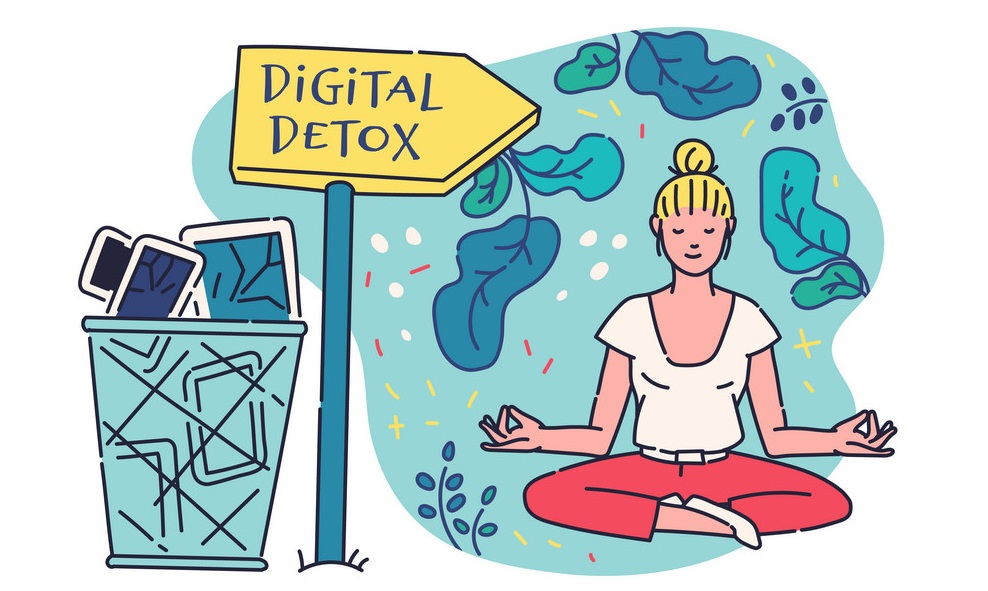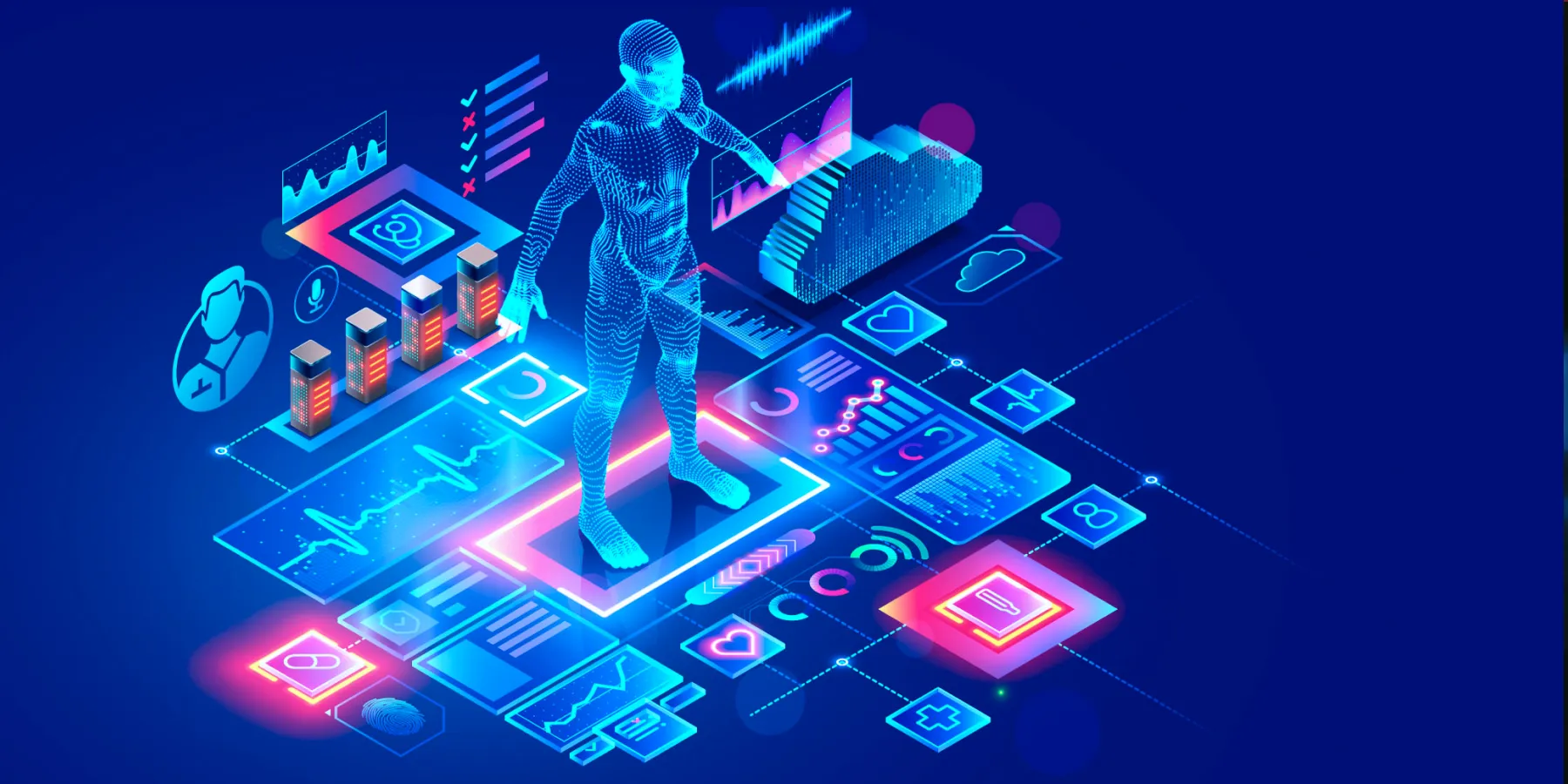Introduction to technology and its impact on our daily lives
In today’s fast-paced world, technology is woven into the very fabric of our daily lives. From smartphones to laptops, screens are often the first thing we see in the morning and the last thing before we sleep. While these devices provide countless conveniences, they also contribute to a phenomenon known as tech addiction. Our brains can become overwhelmed by constant stimulation from notifications, social media feeds, and endless browsing.
Amid this digital chaos emerges a powerful concept: digital detox. This intentional break from screen time isn’t just a trendy buzzword; it’s a crucial practice for restoring mental clarity and emotional balance. Imagine stepping away from your device to reconnect with yourself—sounds refreshing, right? As we dive deeper into what digital detox means for your brain and overall well-being, you may find that hitting pause on your tech habits could be one of the best decisions you make for both mind and body.
Definition of digital detox and its benefits for the brain
A digital detox is a period during which an individual refrains from using electronic devices. This approach encourages people to unplug and reconnect with their environment, themselves, and others.
The benefits for the brain are profound. Stepping away from screens allows your mind to rest and rejuvenate. It helps reduce mental clutter caused by constant notifications and information overload.
This break can enhance focus and creativity. When distractions diminish, your brain can engage in deeper thinking. Many report feeling more present after a detox.
Additionally, reducing screen time can improve sleep quality. A calmer mind at bedtime leads to better rest, ultimately boosting cognitive function during waking hours. Embracing this practice can lead to improved emotional well-being as well, making room for mindfulness in daily life.
The negative effects of constant screen time on the brain
Excessive screen time can lead to cognitive overload. Our brains are not designed for the constant influx of information that comes from social media, news updates, and endless scrolling.
Studies show that prolonged exposure to screens can impair attention spans. We find it challenging to concentrate on tasks without jumping back into notifications or distractions.
Moreover, too much screen time may affect our mental health. Anxiety and depression have been linked to excessive use of digital devices. The pressure of staying connected often leads individuals down a path of stress and overwhelm.
Sleep quality also suffers when we stare at screens late into the night. Blue light disrupts our natural sleep cycles, making it harder for us to unwind.
These impacts create a cycle that fosters tech addiction rather than promoting healthy engagement with technology.
Tips for implementing a successful digital detox
Start small. Don’t overwhelm yourself by trying to cut out all screens at once. Choose one day a week for a digital detox and gradually increase the duration.
Set boundaries. Designate specific times for checking emails or social media, and stick to them. This creates structure around your tech use.
Create screen-free zones in your home. The bedroom should be a sanctuary free from devices, promoting better sleep and relaxation.
Engage with nature. Spend time outdoors without distractions. Nature has calming effects that can help reset your mind.
Involve friends or family members in your detox journey. Make it a group challenge where everyone supports each other’s goals.
Track your progress using journaling or apps designed for this purpose, helping you stay accountable as you navigate away from screen time distractions.
Alternative activities to replace screen time during a detox
When stepping away from screens, exploring new hobbies can be invigorating. Try picking up a book or diving into a creative writing project. Words have the power to transport you far beyond digital confines.
Consider nature walks or hiking. The fresh air and the beauty of greenery can do wonders for your mind. Each step reconnects you with your surroundings.
Art is another fantastic outlet. Whether it’s painting, sketching, or crafting, expressing yourself through creativity fosters relaxation and focus.
Cooking provides a tangible way to engage your senses without technology’s interference. Experimenting with recipes allows you to savor flavors while honing culinary skills.
Meditation promotes mindfulness. Just sitting in silence encourages reflection and emotional clarity—an essential break from tech addiction that often overwhelms our thoughts.
Real-life experiences and success stories from individuals who have tried a digital detox
Maria, a graphic designer from Seattle, decided to embark on a digital detox after feeling overwhelmed by her constant screen time. She committed to one week without social media and noticed an immediate shift in her mood. Instead of scrolling late into the night, she picked up painting again—a hobby she had abandoned years ago.
Then there’s James, an accountant who found himself glued to his phone during family dinners. After participating in a weekend retreat dedicated to unplugging from technology, he returned home with newfound appreciation for face-to-face conversations. His relationships flourished as he became more present.
Emily took it further; she organized monthly “screen-free Sundays” with friends. They explored nature trails and shared stories around campfires instead of binge-watching shows together. Each story showcases how stepping back can lead to richer experiences and connection with oneself and others.
The long-term effects of regular digital detoxing on overall well-being and productivity
Engaging in regular digital detoxes can lead to significant long-term benefits for your overall well-being and productivity. By stepping away from screens, you give your brain a chance to reset. This break allows for improved focus and mental clarity when you return to tasks that require concentration.
Studies have shown that reduced screen time can enhance problem-solving skills and creativity. As your mind becomes less cluttered with digital distractions, you may find it easier to think outside the box and come up with innovative ideas. Additionally, taking a break from technology can improve sleep quality as well. Better sleep leads to higher energy levels during the day, further boosting productivity.
Socially, engaging in offline activities helps strengthen relationships with family and friends. Conversations become more meaningful without the constant interruption of notifications or devices vying for attention. People often report feeling more connected after spending quality time together away from screens.
In terms of emotional health, frequent digital detoxes have been linked to lower stress levels and anxiety reduction. Unplugging allows individuals to reconnect with themselves and their surroundings—something we often overlook when immersed in our devices.
Making digital detoxes a regular part of life not only combats tech addiction but also paves the way for sustained personal growth—both mentally and emotionally—as well as enhanced performance at work or school. Embracing this practice could be one of the best decisions you’ll make for yourself in today’s hyper-connected world.




